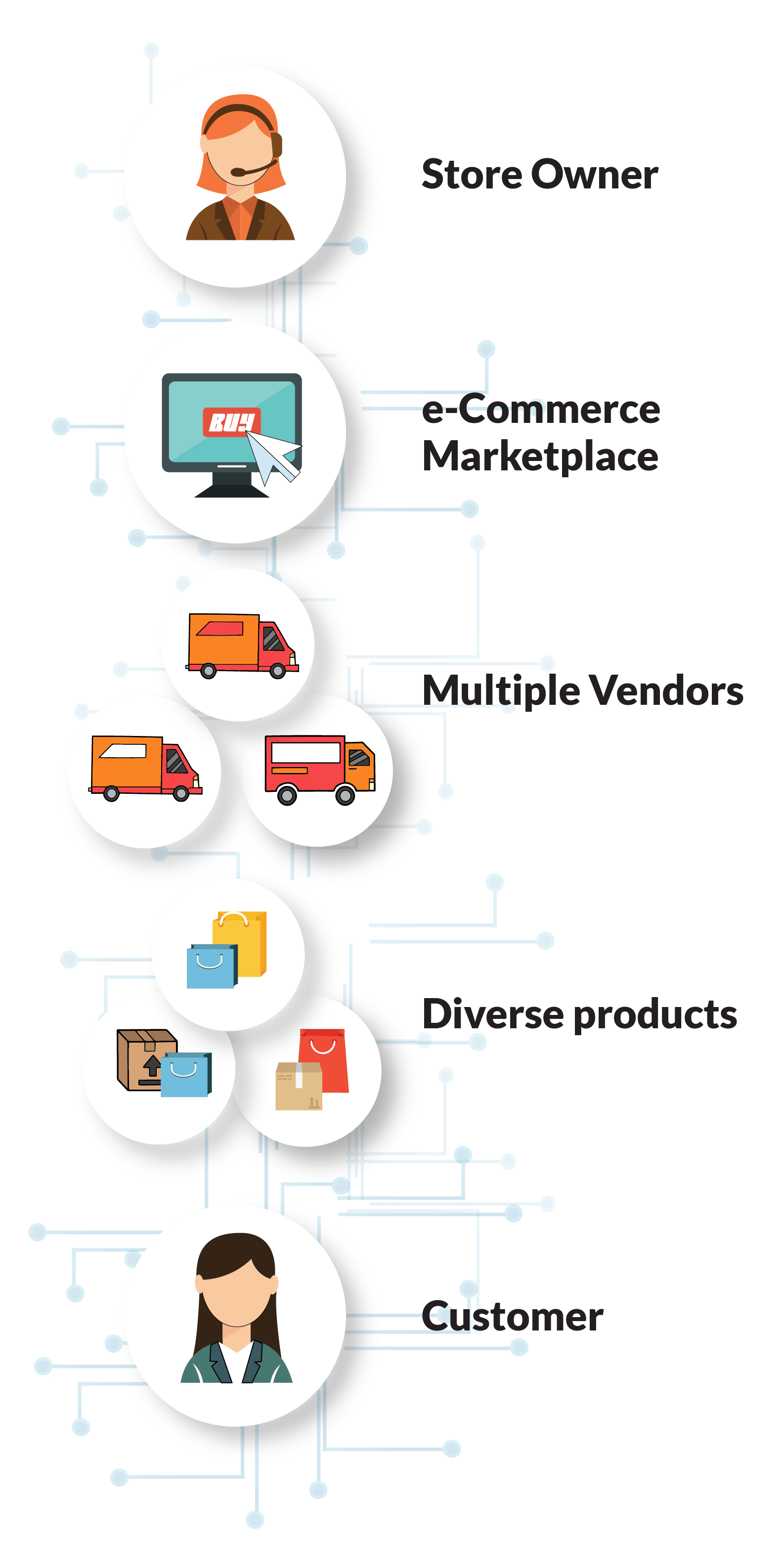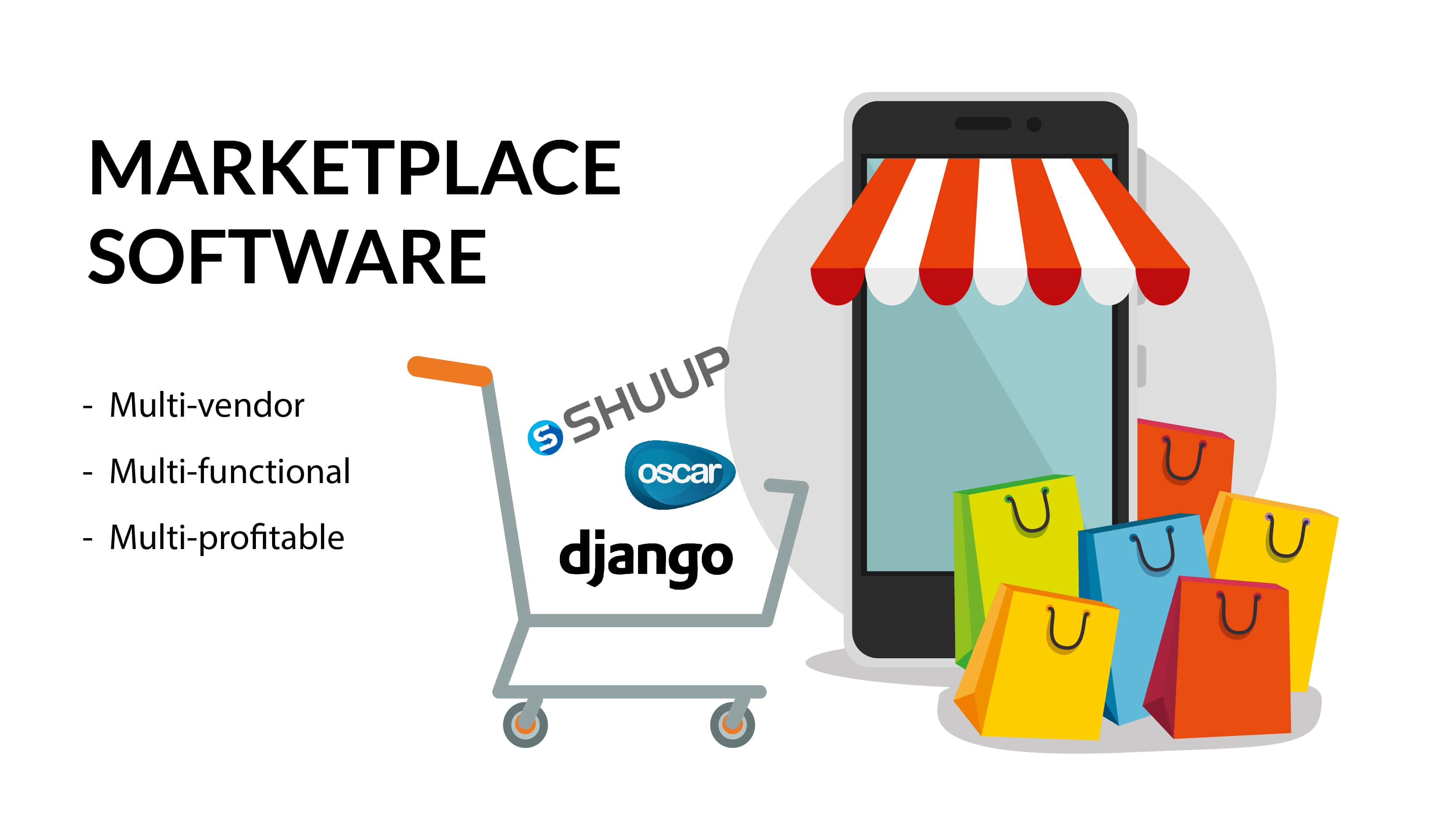Online shopping trends are shifting as e-commerce retailers understand that engaging in multi-vendor shops development is just the best deal. Because of the vast range of benefits, multi-vendor sites are more preferable over regular online stores.
Why invest in e-commerce software?
More effective administration of customers and orders, management of goods and inventory, and simplified marketing are just some of the benefits that come to our mind when we think about the process of running your business online. In addition to these benefits, one can plus automated transportation and reduced burdens of taxation. Just imagine. Your shop is always open since you are not limited to the working hours of your employees. You can sell anywhere and to anyone, as online shops are not limited in geography and time zones. You can display as many products as you wish, your online catalog has no physical space. Moreover, the products can be filtered according to customer needs.
The variation of e-commerce websites and their benefits runs as deep as your imagination allows it to. But in this article, we would like to focus more on the notion of multi-vendor marketplace platforms.
What’s so special in multi-vendor marketplace?
What really counts is the fact that not only you can benefit from this type of e-commerce store. It actually satisfies the whole ‘ecosystem’ of retail - the owner, vendors, and customers.
Benefits to store owners
- The main advantage is flexibility. While most web shops are dependent on the manufacturing of the products, store owners may focus only on the platform itself.
- Store owners raise the chances of profit by taking a commission on the commodities sold by vendors.
- Turnkey traffic. Multi-vendor platforms bring a larger amount of traffic to the website due to the larger audience. You are not just limiting yourself to a small target group. Instead, you reach all cultures, genders, and desires.
- Selling products, digital goods, rentals and services are possible in one place. B2B or B2C, multi-vendor online shops work for any scale projects.
- You are not dependent on volatility in the market. Some items get famous, others disappear forever. The place people purchase remains the same - your platform.
Benefits to vendors
- To small businesses, one of the greatest fears is the cost of advertising. But the marketing strategy of multi-vendor marketplace owners may also cover the vendor sub-sites.
- There's always competition for your business. Multi-seller marketplaces create a friendly environment for the regular exchange of prices and rates.
- Marketplaces in eCommerce encourage products to be sold overseas by giving sellers an opportunity to trade on the international online marketplace.
Benefits to customers
- It is easier to compare the products in one marketplace rather than wandering on multiple websites. As a consequence, customers get a better place to choose the product or service they want.
- Creating tough competition within the e-commerce store vendors, users benefit from the sales they offer.
- Since multi-vendor marketplaces offer real-time and modified commodity availability and cost details making it easier for purchasers to get the best deal.
Built with Python - built with efficiency
Marketplaces in e-commerce need to run fast, efficient technology. They handle millions of transactions via complex data-processing software programs. Creating a multi-vendor marketplace for Python and Django is the first move in coping with the massive flow of users. At the same time, large-scale e-commerce marketplaces deliver lots of transactions. Which ensures there are lots of data to process for the marketplace app. This is achieved for ease in the Python programming language.
It's also critical to have the consistency of the code written for your market place. Python is one of the languages with the greatest readability. Therefore, checking and troubleshooting are simple to do too. This ensures that your dev team will concentrate on improving the website and adding new features, instead of fixing problems. Since Python is easy and legible, creating a marketplace demands fewer coding and energy.
You can reuse technology from other initiatives, as well. This usually means the production of your final product takes less time and expense. Python and Django also use other plugins, frameworks, and libraries. These are pre-constructed functions that can be applied to the code, which results in the reduction of time spent on coding.
What is more, you can operate your e-commerce multi-vendor marketplace on virtually any website or database, with Python and Django. You can develop and run applications on Windows, Mac, or Linux. Python and Django are compatible with most applicable databases for the programming.
The power of custom marketplace solution
No doubt, the best solution is the one tailored for your specific needs. Having in our technological stack 16+ years of Python-based software development, powerful frameworks, libraries and platforms, like Django, Oscar and Shuup, and a decent joint team of software engineers, Quintagroup is here to craft a robust solution that will cover all your needs and even exceed your expectation.
You will get a chance to customize your own branding. Fonts and pages, logos, color themes will keep consistent with your brand identity across all channels. Unlimited customizability of UI/UX design is achievable for each vendor micro-site as well. The best multi-vendor marketplace themes may become available for you. Contact us to get more information.
Let Quintagroup take care of your multi-vendor marketplace development!


